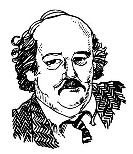Feb. 20, 2014
(Syndicated to Kansas newspapers Feb. 17, 2014)
 There’s a new pastime among Kansas Statehouse insiders—we’re calling it “ReFresh Friday.”
There’s a new pastime among Kansas Statehouse insiders—we’re calling it “ReFresh Friday.”
Huh?
Yes, it’s the act of hitting the refresh button on your computer to see whether the Kansas Supreme Court has issued at about 9:30 a.m. on any Friday, along with its other decisions, the Gannon v. Kansas school finance case decision.
Because the 9:30 a.m. release time is not precise (that’s why you have to ReFresh the court website frequently, and we figured the odd capitalization might give someone an idea for a T-shirt plus ReFresh Friday makes a nice companion day to Throwback Thursday, the day you post old photos on social media), you hit the button over and over again to check.
Catching the first glimpse of the decision that might order the state to spend upwards of $440 million on school finance is something that will carry bragging rights…no matter which way the decision goes.
A decision that the state has under-funded its support for K-12 education sets off a battle between the Legislature, the governor and the courts over who is responsible for financing education and whether the court can order the state to actually pay a judgment handed down by the court. It gets into tricky constitutional law, whether the Supreme Court can order the Legislature to make an appropriation.
A “no-harm, no-foul” ruling? A possibility, too.
But the legislative anxiety over the decision—and being the first to know it—has apparently spurred a couple of bills that target the Kansas Supreme Court and specifically its Chief Justice Lawton Nuss for a trim of his authority.
One of those bills flatly orders that no court in Kansas can spend any money on hiring lobbyists. Not a lot of court-hired lobbyists around the Statehouse, lobbying, for, say, nicer robes, or maybe softer chairs, but it’s a little tug on the leash for the Kansas judiciary.
Another takes from the chief justice the authority to designate the chief judge of each of the state’s 31 judicial districts. That’s a little perk of being chief justice, designating the district court chiefs. The bill would have the judges in each district vote among themselves for the job of being in charge, and making an extra $1,000 a year.
The bill would also have the 14-member Court of Appeals elect its own chief judge—just another diminution of the chief justice’s authority that might lead to some interesting little campaigns that the general public will never hear about.
And, of course there are the resolutions that would let the governor choose his own Supreme Court justices without any nomination commission in the way…and another that would elect those justices.
Oh, and did we mention that the Supreme Court needs a little extra money in its budget to avoid furloughs for its non-judge staff?
Makes you wonder how hard some legislators are hitting that ReFresh button, doesn’t it?
